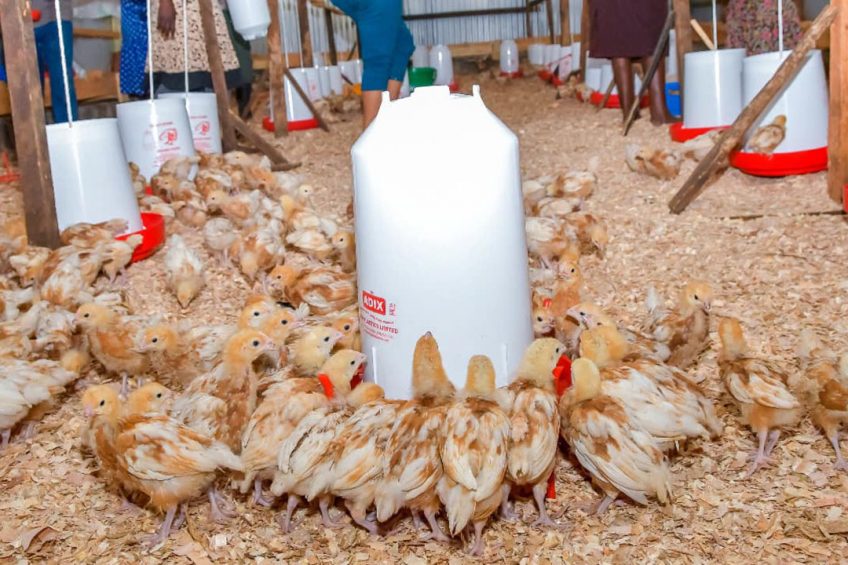Kenya: 1 million eggs project launched

A project involving 32 community groups each rearing 1,250 layers has been launched in Kenya.
The project will enable farmers to produce 1 million eggs per month, earning each of them 1,000 Kenyan shillings (US$ 9.26) daily. It was launched by Kirinyaga county governor, Anne Waiguru, and implemented under the ‘Wezesha Kirinyaga’ (‘Enable Kirinyaga’) programme. It is aimed at increasing agricultural productivity and profitability in the county, with a specific focus on uplifting the livelihoods of women and youth.
A huge deficit exists in the production of eggs in Kenya and has resulted in the importation of eggs from neighbouring countries. According to Waiguru, Kenya imports 10 million eggs a month.
Wezesha poultry project is aimed at improving livelihoods of Kirinyaga people…”
Through this project, a total of 40,000 chicks were delivered to the groups in March and have now matured into layers with about 100,000 eggs having been collected in one week. The layers are, however, expected to reach optimum laying capacity from September.
 Enhancing poultry genetics in Sub-Sahara Africa
Enhancing poultry genetics in Sub-Sahara Africa
Moves to design and supply enhanced poultry genetics across sub-Saharan Africa are in full swing as part of developments to enhance sustainable production on the Continent.
Reducing over-reliance on cash crop farming
“Wezesha poultry project is aimed at improving livelihoods of Kirinyaga people mainly through women and youth, and also offers alternative income source thereby reducing over-reliance on the conventional cash crop farming,” said governor Waiguru during the launch, which took place at Kirinyaga Agricultural Training Center (KATC) animal production unit at Kiaga.
 USGC promotes poultry industry growth in West Africa
USGC promotes poultry industry growth in West Africa
Producers are battling to meet an ever-increasing demand for poultry meat and eggs in sub-Saharan Africa.
Project aims to reach 3 million eggs
The eggs are collected and taken to the cold storage facility in Kiaga for packaging and branding before being taken to the market. The storage facility handles around 3,500 trays of eggs at any given time. There remains a huge demand for eggs and there is room for the project to expand, with 42 more groups having been incorporated for the 2nd phase of the project. The project aims to reach 3 million eggs, says Waiguru.
 Nigeria: Shortage of maize is crippling the poultry industry
Nigeria: Shortage of maize is crippling the poultry industry
The Nigerian poultry industry is on the brink of collapse and could lose about N1 trillion (US$ 2.6 billion) annually, threatening at least 1 million jobs.
Affordable chicken feed
To ensure that the farmers access affordable and quality feed, the county government has been distributing certified chicken feed manufactured at KATC. “We produce our own feed to reduce costs,” said Waiguruu, adding that the feed is certified and produced according to international standards. The feed factory has thus far produced 6,828 bags equal to 478 tonnes of feed. Furthermore, the county’s veterinary and livestock extension officers attached to the project offer the necessary technical support to farmers.













